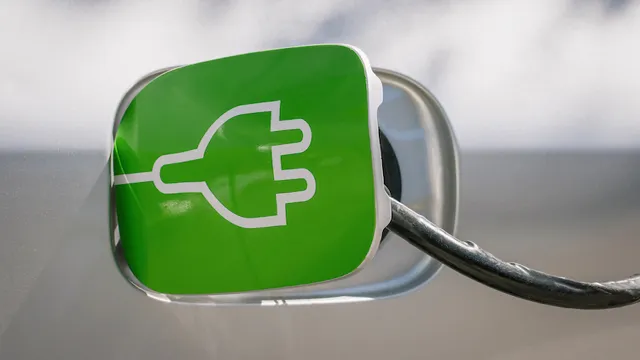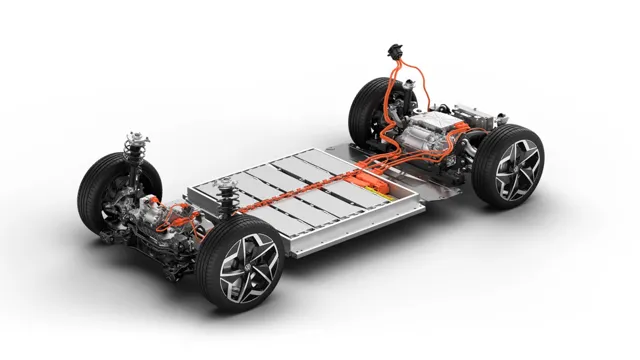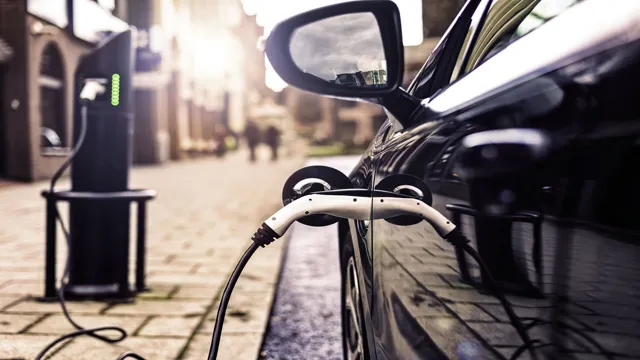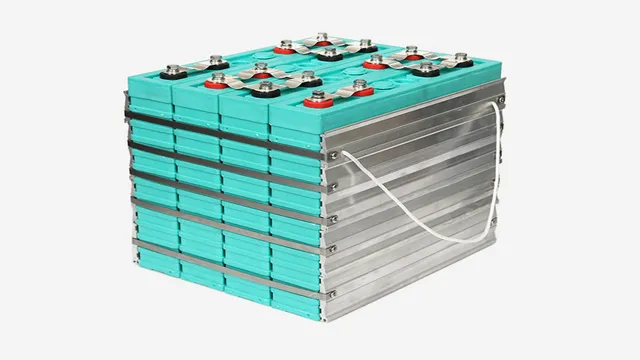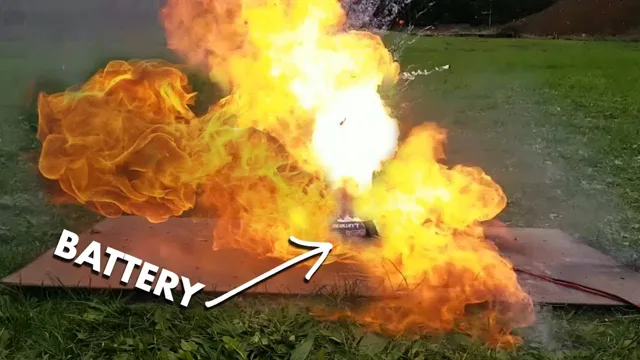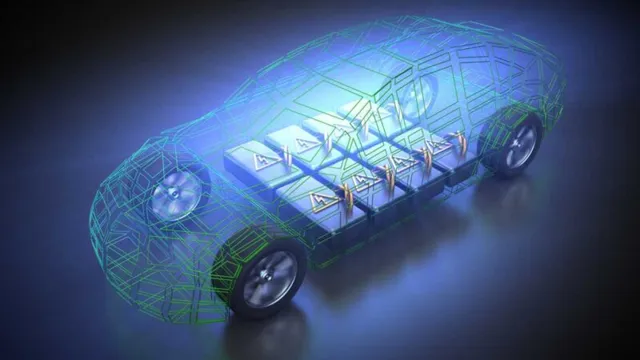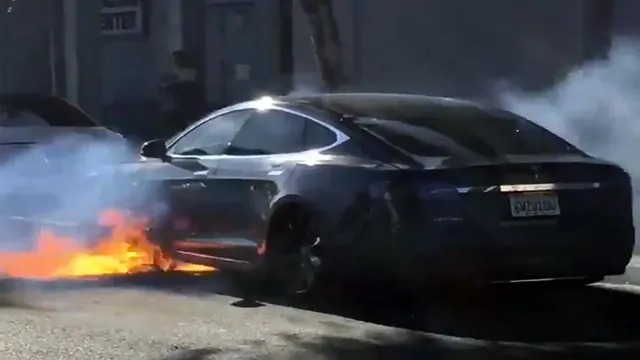Revolutionizing the Commute: Fast Charging Electric Car Batteries in Just 5 Minutes
Rechargeable batteries have been around for over 50 years, but they haven’t evolved much since their inception. However, there is now a new technology that promises to revolutionize the rechargeable battery industry as we know it. It’s called solid-state batteries, and they represent a significant step forward in terms of energy storage and safety.
Unlike typical lithium-ion batteries, solid-state batteries use a solid electrolyte instead of a liquid one, which makes them less prone to leakage and fire hazards. This new technology has the potential to change the way we store energy and power our devices. Solid-state batteries can hold more energy than lithium-ion batteries, allowing for longer battery life and faster charging times.
They’re also more durable and less likely to degrade over time, which means they’ll be able to last longer and perform better throughout their lifespan. Solid-state batteries have yet to become a mainstream solution, but they’re already being developed by several companies, including Toyota, BMW, and Dyson. These companies see the potential in this technology and are investing heavily in its development.
It’s only a matter of time before we start to see solid-state batteries become more prevalent in consumer electronics. Revolutionizing recharge with solid-state batteries isn’t just about enhancing convenience. It’s about creating a safer, more reliable, and environmentally-friendly energy source for the future.
As we continue to rely on technology in our daily lives, the need for efficient and safe power storage solutions becomes more pressing. The development of solid-state batteries is a promising step in the right direction.
Instant Energy
Have you ever wished for your electric car’s battery to charge faster than it takes to grab a cup of coffee? Well, that may be possible in the near future. A company called StoreDot claims to have developed a battery that can be charged in just five minutes. This technology uses organic compounds called peptides to create a new electrode structure that is more stable and less likely to degrade during charging.
Imagine being able to take a road trip without worrying about taking long breaks to wait for your car to charge. This breakthrough could revolutionize the electric car industry, making it more convenient and accessible for everyone. While the technology is still in its early stages, it’s exciting to think about the possibilities of an electric car battery that can give us instant energy.
Faster Than Ever Before
If you’re feeling sluggish and unmotivated, there’s one solution that can give you an instant boost of energy: caffeine. It’s a highly effective stimulant that can help you stay alert and focused, whether you’re pulling an all-nighter or just need a little pick-me-up. With the popularity of energy drinks and coffee shops, it’s easier than ever to get your caffeine fix.
But there’s a downside to this convenience: the potential for overconsumption. Too much caffeine can leave you feeling jittery and anxious, and it can disrupt your sleep patterns. So, while caffeine can be a great tool for increasing your productivity, it’s important to use it in moderation.
Try limiting your intake to one or two cups of coffee or tea per day and see how it affects your energy levels and overall wellbeing. Remember, when it comes to caffeine, a little can go a long way.
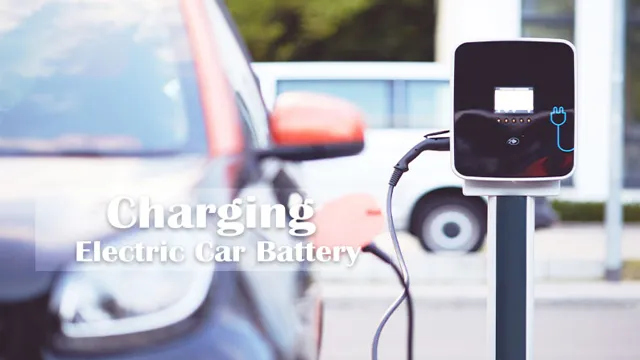
The Future of Electric Cars
Electric cars are definitely the future of sustainable transportation, and their development is rapidly evolving. One of the most promising features of electric vehicles is their ability to charge almost instantly. Just like we pump gas in a matter of minutes, electric cars can now charge up to 80% in as little as 15 minutes.
The key to achieving this is through innovations such as DC fast charging infrastructure, which is becoming more widely available across the globe. This means that long-distance road trips will become increasingly feasible for electric vehicles, eliminating the so-called “range anxiety” that has been a major concern for potential electric car buyers. The concept of “refueling” an electric car is also changing, as more and more public charging points are popping up in parking lots, hotels, and shopping centers.
With instant energy, electric cars are set to revolutionize the way we drive, and soon gas stations will be a thing of the past.
Reducing Wait Times
Waiting for your electric car to fully charge can be a frustrating experience, but new technology promises to drastically reduce the wait. Recent advancements in battery technology have led to the development of batteries that can be fully charged in as little as 5 minutes. This is a game changer for the electric car industry, as it addresses one of the major roadblocks to widespread adoption.
No longer will drivers have to wait hours for their car to charge before hitting the road. With this new technology, a quick stop at a charging station will easily replenish the battery, allowing drivers to get back on their way in no time at all. This breakthrough brings us one step closer to a future where electric cars are the norm, and we can say goodbye to the inconvenience of long charging times.
Innovative Charging Solutions
Innovative charging solutions are making a big impact on reducing wait times for electric vehicles. With the rise in popularity of EVs, there has been a growing concern about the time it takes to charge them. However, technological advancements in charging stations have made significant improvements in reducing wait times.
Some charging stations now have high-powered chargers that can provide a full charge in as little as 15 to 20 minutes. These fast chargers are becoming increasingly popular at public charging stations and are a game-changer for EV drivers who are on the go. Additionally, there are now wireless charging pads that allow drivers to simply park their EV over the pad to charge.
This means no more fussing with cords and connectors, making charging even more convenient. As these innovative charging solutions continue to develop and improve, EV drivers can look forward to spending less time waiting and more time on the road.
Optimizing Battery Technology
As technology advances, one area that has seen significant improvements is battery life and charging speed. One of the biggest concerns for consumers when it comes to mobile devices, laptops, and electric cars is how long they have to wait to recharge. Fortunately, companies have been working hard to optimize battery technology to reduce wait times.
For example, new smartphone models now support fast charging, allowing users to charge their phones to a significant percentage in just a few minutes. Electric cars have also seen improvements, with some models being able to charge up to 80% in just half an hour. This is all thanks to advancements in battery chemistry and engineering, which have led to the development of better and more efficient battery materials.
By properly optimizing battery technology, we can reduce the wait times associated with recharging, making our lives easier and more convenient.
Benefits for Drivers
As a driver, one of the most frustrating aspects of the job can be the long wait times at pickup and delivery locations. However, there are solutions available that can help reduce those wait times and make your life easier. One such solution is the implementation of real-time tracking and communication systems.
By using GPS technology to track your location and communicate with dispatch and the pickup/delivery location, these systems can provide more accurate and up-to-date information on your arrival time, allowing for smoother and more efficient operations. Additionally, some systems even offer features like automated check-in and appointment scheduling, further reducing wait times and improving overall service. Implementing these systems not only benefits drivers, but also leads to greater satisfaction for customers and increased productivity for the entire logistics chain.
By embracing new technologies and improving operations, we can create a better future for drivers and the industry as a whole.
A Greener Tomorrow
As our world moves towards a greener tomorrow, the need for more efficient and eco-friendly automobiles is on the rise. One of the biggest challenges for electric cars has been the time it takes to charge their batteries, but that may soon be a thing of the past. Researchers have made significant progress in developing a new type of battery that can be charged in just five minutes.
This breakthrough is a game-changer for the electric vehicle industry, making EVs even more practical and appealing to consumers. Plus, with quicker charging times, the infrastructure for EV charging stations can be streamlined and expanded, making them more accessible for drivers. It’s exciting to see how technology is paving the way for a cleaner and more sustainable future.
Sustainability in Transportation
Sustainability in transportation has become an increasingly important issue as we strive towards a greener tomorrow. From electric cars to public transportation systems powered by renewable energy sources, there are numerous alternatives to traditional gasoline-powered vehicles. One of the most popular solutions is electric vehicles, which emit zero emissions and can significantly reduce our carbon footprint.
In addition to using alternative modes of transportation, there are also actions we can take to reduce our impact on the environment, such as carpooling and avoiding idling. The importance of sustainability in transportation cannot be overstated, as our reliance on fossil fuels and unsustainable transportation practices have had negative impacts on our planet. However, by making small changes and embracing new technologies, we can work towards a more sustainable future.
The Positive Impact of Electric Cars
Electric cars are becoming increasingly popular in today’s world, and for good reason. These vehicles offer a more sustainable way to travel, providing us with a greener tomorrow. By using electricity as a fuel source, electric cars produce zero emissions, which drastically reduces our carbon footprint.
This positively impacts the environment by decreasing air pollution and ultimately improving the quality of the air we breathe. Additionally, electric cars are more energy-efficient, which leads to longer use on a single charge and lower operating costs. The positive impact of electric cars goes beyond just the environment and economics; they also offer a quieter and smoother ride, providing a more comfortable and convenient driving experience.
With the continued development and new technology in the automotive industry, electric cars are becoming more reliable, and the range of vehicles available is continuously improving. By making the switch to electric cars, we can be part of the solution in creating a sustainable future that benefits not only ourselves but the entire planet.
Leading the Charge
Electric car battery technology is evolving at an unprecedented pace, and researchers are now leading the charge in developing sustainable and rapid charging systems that can recharge batteries in just five minutes. This is a huge leap forward from the traditional charging time of several hours, and it could potentially revolutionize the way we travel and commute. The latest generation of lithium-ion batteries uses innovative technologies like silicon anodes, solid-state electrolytes, and fast-charging networks to deliver a sustainable and efficient experience for owners of electric cars.
This new generation of batteries could help reduce our dependence on fossil fuels and lower our carbon footprint, making our communities and the world a cleaner, greener, and more sustainable place for generations to come. Perhaps it is not too far-fetched to imagine a world where a road trip in an electric vehicle no longer requires long charging stops, but can be accomplished in the time it takes to grab a quick cup of coffee. With innovations in battery technology, a more energy-efficient and sustainable future is on the horizon.
Conclusion
In a world where time is money and convenience is key, the ability to charge an electric car battery in just five minutes is a game changer. No longer will we have to spend hours waiting for a vehicle to power up, or drive conservatively to avoid running out of juice mid-trip. With this incredible technology, electric cars become both practical and efficient, making it easier than ever before to embrace a cleaner, greener future.
So let’s plug in and power up, because the race towards sustainability just got a whole lot faster!”
FAQs
How long does it typically take to charge an electric car battery?
The time it takes to charge an electric car battery can vary depending on the size of the battery and the charging station used. However, recent advancements in technology have made it possible to charge some electric car batteries in as little as 5 minutes.
Are all electric car batteries capable of being charged in 5 minutes?
No, not all electric car batteries are currently capable of being charged in 5 minutes. However, there are certain brands and models that have adopted fast-charging technology which allows for quick charging times.
What is the maximum distance an electric car can travel on a single charge?
The maximum distance an electric car can travel on a single charge varies depending on the specific make and model, as well as driving conditions and factors such as temperature and use of air conditioning. However, some models can travel up to 400 miles on a single charge.
Can I charge an electric car at home?
Yes, it is possible to charge an electric car at home using a standard power outlet or with a specialized charging station installed in your home. It is important to note that charging times may vary depending on the charging method used.
